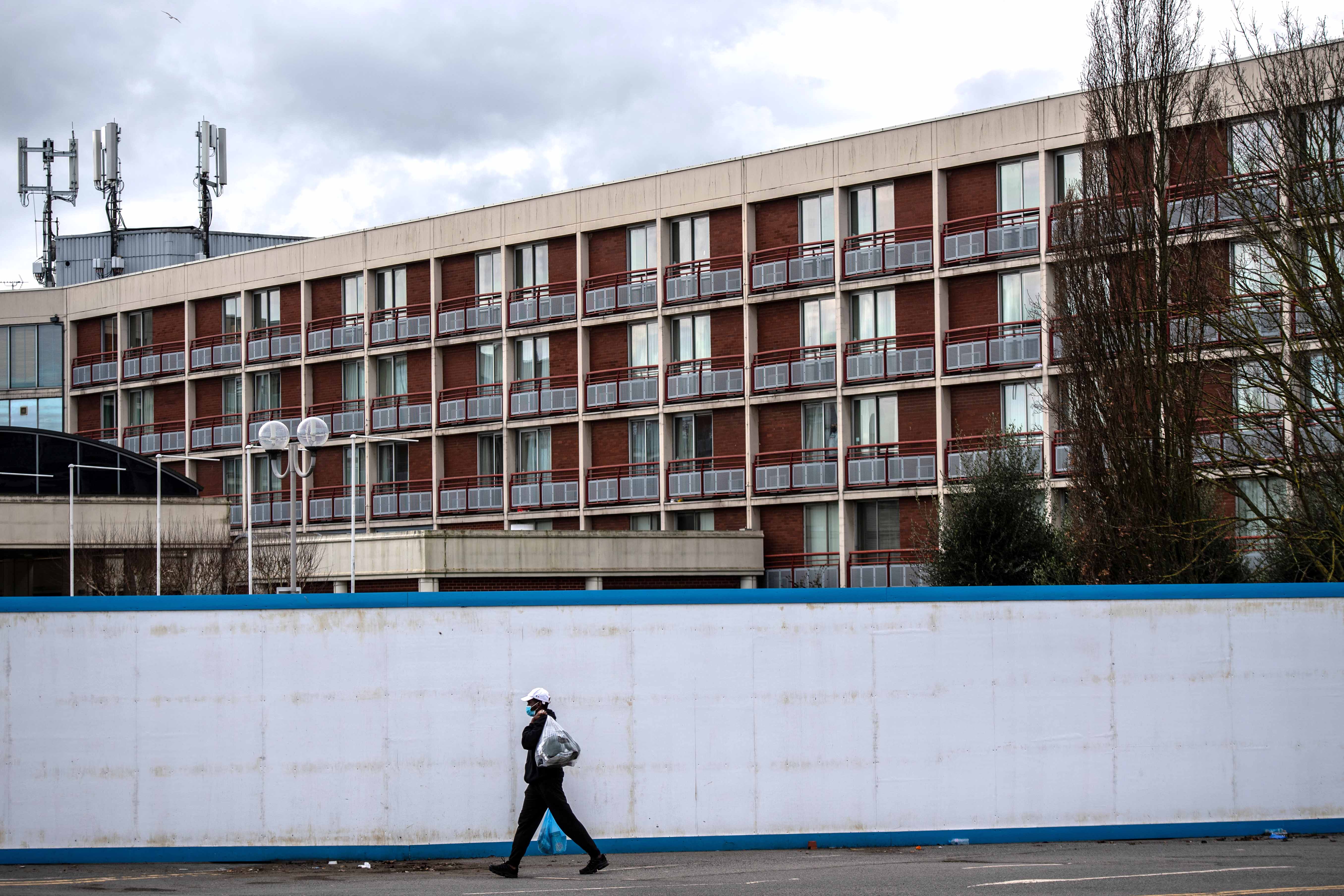‘Dehumanising’: Asylum seekers in hotels left without shoes and given ‘inadequate’ food, report finds
‘Extremely concerning’ gaps in support for vulnerable people in Home Office accommodation, warns charity

Your support helps us to tell the story
From reproductive rights to climate change to Big Tech, The Independent is on the ground when the story is developing. Whether it's investigating the financials of Elon Musk's pro-Trump PAC or producing our latest documentary, 'The A Word', which shines a light on the American women fighting for reproductive rights, we know how important it is to parse out the facts from the messaging.
At such a critical moment in US history, we need reporters on the ground. Your donation allows us to keep sending journalists to speak to both sides of the story.
The Independent is trusted by Americans across the entire political spectrum. And unlike many other quality news outlets, we choose not to lock Americans out of our reporting and analysis with paywalls. We believe quality journalism should be available to everyone, paid for by those who can afford it.
Your support makes all the difference.Asylum seekers are being left without adequate shoes, clothing or suitable food in Home Office hotel accommodation, in what has been condemned as “dehumanising” treatment.
A report by the Refugee Council reveals that people seeking refuge have been confined to their rooms for days because they have inappropriate footwear – for example only a pair of flip-flops – or are having to wait for their one set of clothes to be cleaned.
In other cases, people who are physically unwell have had no option but to eat food that is harmful to their health, and have been unable to access even basic healthcare, with some prevented from getting the Covid vaccine despite being eligible.
Thousands of asylum-seeking men, women and children have been placed in emergency hotel accommodation over the past year, often for months on end, as the pandemic has led to mounting delays in the asylum system. More than 8,000 people are currently said to be living in hotels.
The Home Office started an operation in February to “accelerate” the movement of asylum seekers from hotels into longer-term accommodation, but this is proving to be a slow process as the contracted housing providers are struggling to procure housing.
The new findings, based on the Refugee Council’s work with over 400 asylum seekers across Leeds, London, Hull and Rotherham, expose “extremely concerning” gaps in support at the hotels.
The charity has had to step in to provide basics such as shoes and coats and to make sure people receive the food they need. In some cases they have also had to arrange for vulnerable people to be transferred out of hotels.
Shadow immigration minister Holly Lynch accused the Home Office of operating with a “lack of compassion and competence” which has resulted in emergency asylum accommodation becoming the norm.
The report describes the quality of food in hotels as a “major cause of concern”, stating that “repeated poor-quality meals” are contributing to the declining physical health of people placed there.
In one case, a man with underlying kidney problems was unable to take his GP’s advice to change his diet by drinking more water and eating more vegetables and oily fish, because of the limited food options provided and the fact that the hotel had stopped providing bottled water.
His physical condition subsequently declined, and it wasn’t until the Refugee Council intervened that he was relocated to self-contained accommodation where he could cook for himself.
The report also cites a lack of information on how to access primary healthcare, which it says leaves many people who have complex health needs unable to access appropriate treatment, including the Covid-19 vaccine.
Most asylum seekers in hotels receive £8 a week from the Home Office, though some receive no financial support, and they are often unable to source basic items that are not provided, such as plasters, umbrellas and nail clippers, which are not supplied to people in hotels.
One man, a 28-year-old Iraqi who has been in a hotel in Yorkshire for seven months, told The Independent he had had to wait six months for a winter jacket, and in the meantime had borrowed coats from other people in the hotel.
“Why are we treated like this? We are human beings. I had a really good life [in] my country. I just had to leave because I spoke out against the government. When I moved here, I was shocked,” he said.
The man, who arrived in the UK in September, added: “The food is not edible at all. I was healthy before but now my stomach isn’t feeling well. A lot of people are only eating chips most of the time. They give us expired stuff in the mornings. All of my friends and me have lost weight.
“It’s like a prison that they’re calling a hotel. There’s security everywhere. You go out for a few minutes and they write your room number down. It’s like they’re trying to give you mental health problems.”
Enver Solomon, chief executive of the Refugee Council, said it was “appalling” that asylum seekers were being left feeling “abandoned” in “inappropriate” accommodation with “inadequate” support.
“To prevent this dehumanising treatment from continuing, we call on ministers to promise that every person seeking asylum receives appropriate support, including access to healthcare, basic clothing and essential services,” he added.
A Home Office spokesperson said: “The use of hotels to temporarily accommodate people was necessary to help safely manage demands on the asylum estate during the pandemic.
“Asylum seekers who would otherwise be destitute are provided with accommodation, a choice of three meals a day in line with NHS nutrition guidelines, as well as access to fresh fruit and drinking water and we work closely with our providers and local charities to provide other basics.”
Join our commenting forum
Join thought-provoking conversations, follow other Independent readers and see their replies
Comments